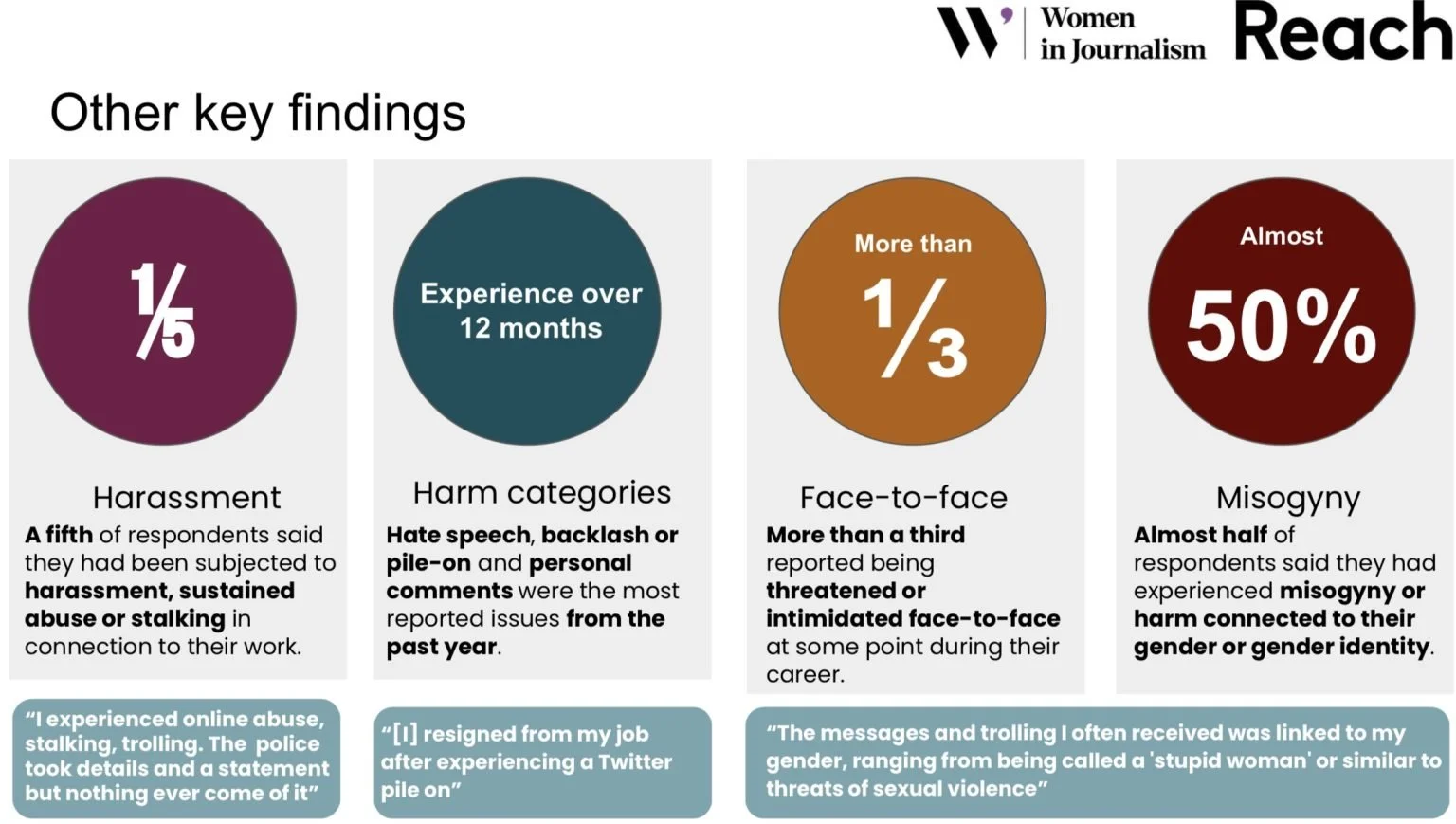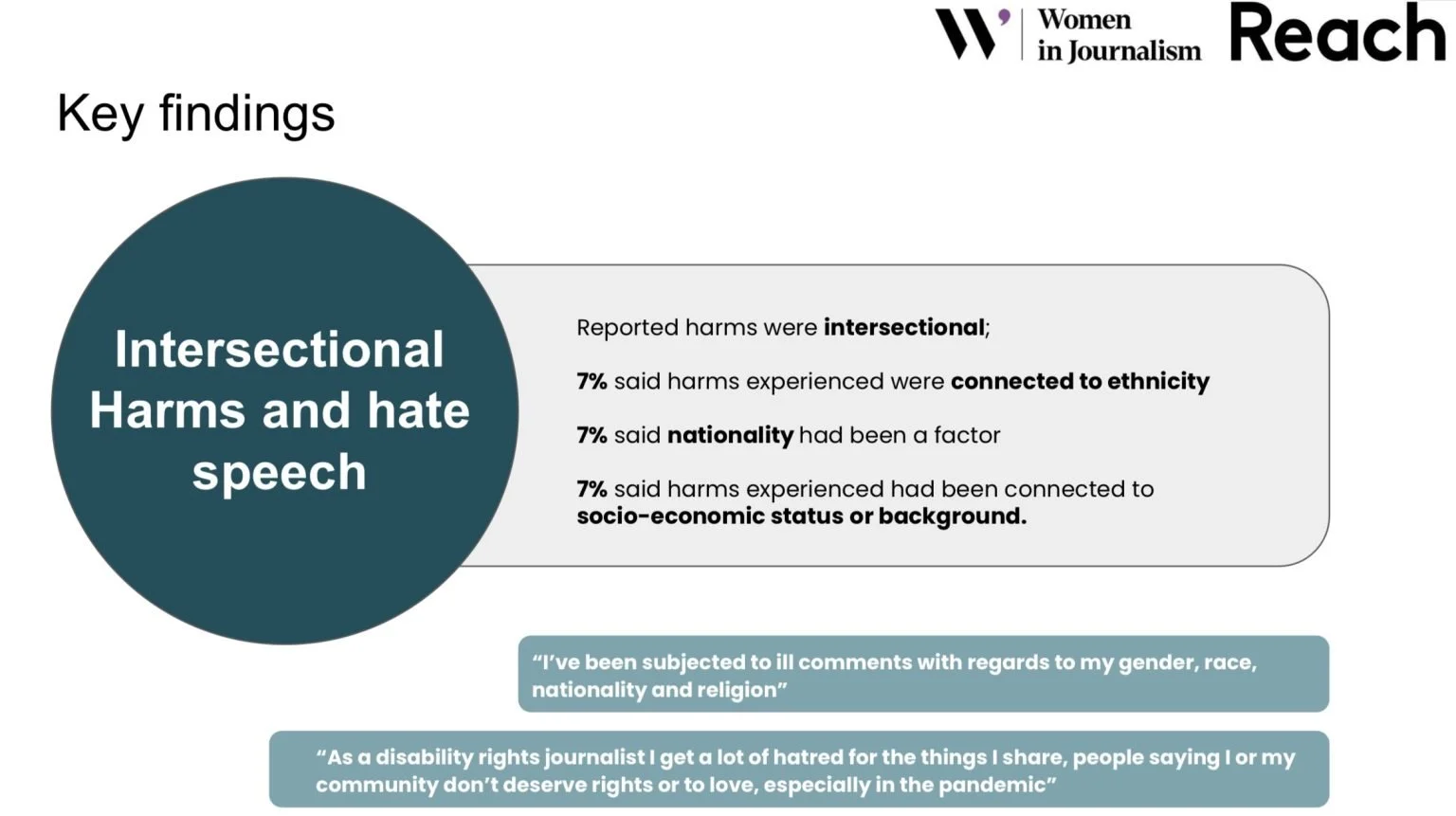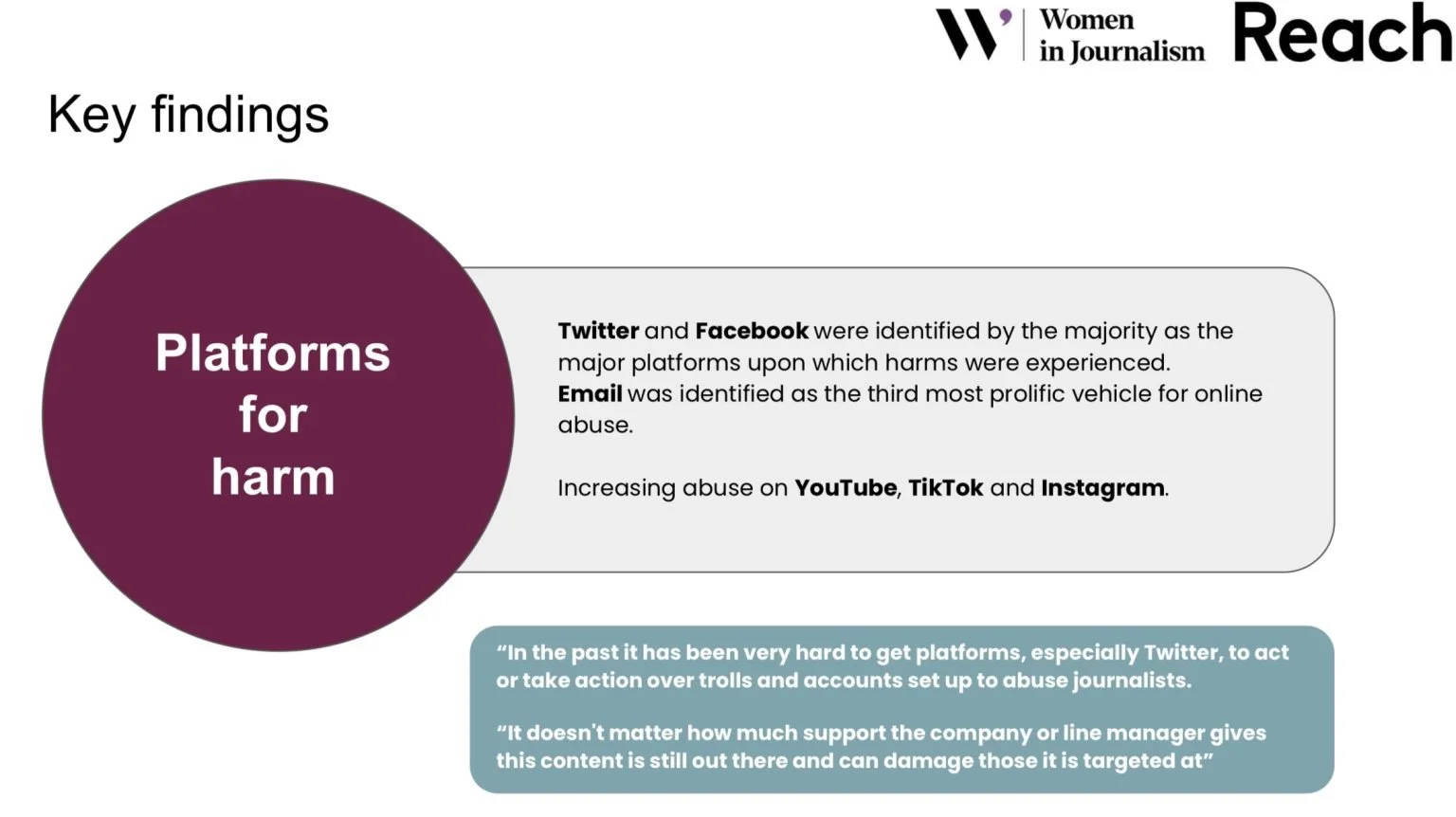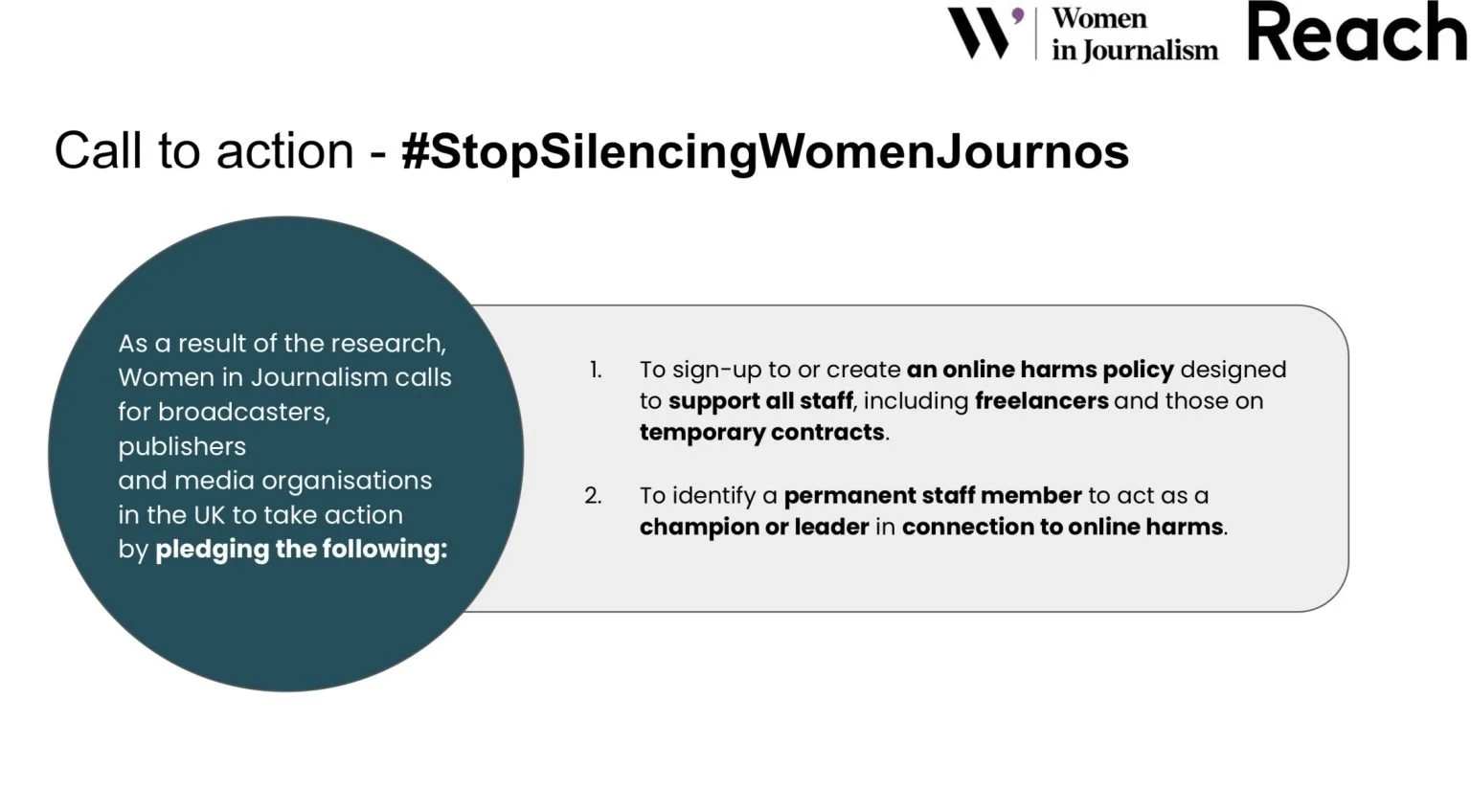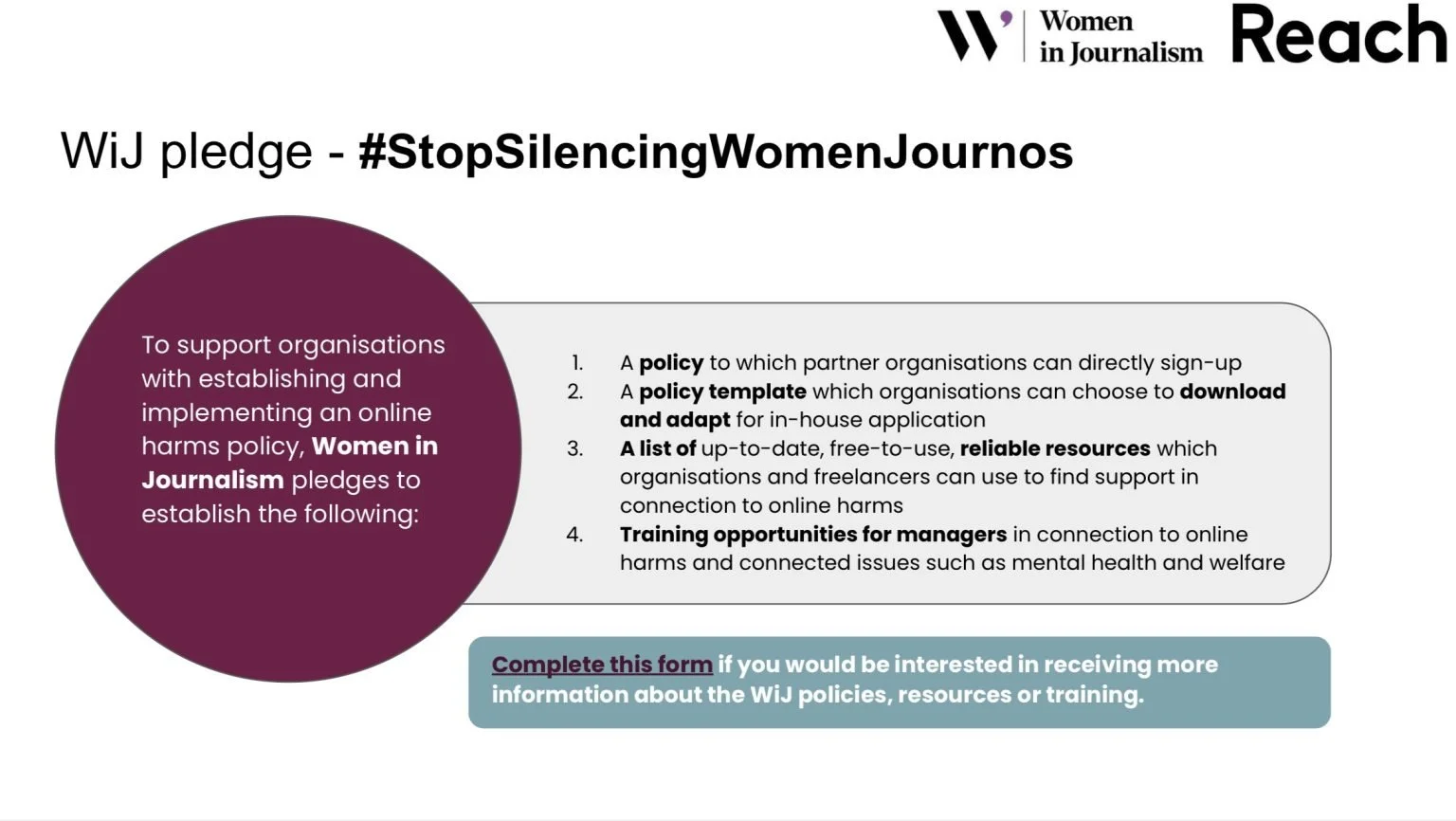Research report 2023: Online harms against women working in journalism and media
WiJ has partnered with Reach and Reporters Without Borders UK (RSF) over the past two years to raise issues around journalism safety and to provide resources and response for journalists faced with safety issues. Research published by WiJ and Reach in 2023 showed 75% of respondents (400 women working in journalism or media industries) had experienced some kind of online threat to their safety in connection to their work and that a fifth had considered leaving industry due to safety threats.
WiJ subsequently hosted a series of free-to-all workshops offering advice around online and psychological safety, stalking and harassment and mental health in journalism. WiJ also provided a downloadable policy/response guidance that could be used by news organisations or individuals as a template for managing online harms and threats of violence.
In March 2024 more than 100 media leaders in the UK signed a letter written by WiJ, Reach and RSF to the police leads on the government's National Committee for the Safety of Journalists calling for online crimes reported to police by women journalists to be better recorded and for improvement in communications between police and media industries. The letter was later referenced in detail in a report and recommendations made by the Society of Editors, the Crime Reporters Association (CRA) and Media Lawyers Association (MLA).
All of this work has been coordinated by Dr Rebecca Whittington, Online Safety Editor for Reach Plc and advisory committee member for WiJ. Rebecca also sits on an employer sub-committee that feeds into the National Committee for the Safety of Journalists.
You can read the online safety report here
Summary and Recommendations
Online harm is an interpretive issue and individuals respond differently when faced with online harm depending on a number of factors. However, this report makes it clear that without decisive action to support staff and freelance contributors, there is a real risk that women working in journalism and media will leave their roles or choose to fade into the background online. The research shows the ‘chilling effect’, as identified globally by UNESCO on the voices and activities of women working in journalism and the media is being significantly felt in the UK.
Participants also referred to inconsistencies in how employers, managers and authorities such as the police responded to online harms. In an industry attempting to be more inclusive and with a government attempting to secure a safer internet, the issues highlighted in this report suggest there is still significant work to be done to make online spaces safer for women working in journalism and media.
The comments provided by participants also highlighted a frustration about the lack of accountability of social media platforms but also suggested a sense of resignation – many participants alluded to online harm being ‘part of the job’ and suggested there was little that could be done by individuals when social platforms refused to take action.
There were points made in the responses about physical safety. These will be examined in greater detail and may be used as evidence or a conversation starter for future projects by Women in Journalism. There was also mention by respondents at times to terminology around language and gender – these points will be shared as a point of reflection and may inform future research design.
The low incidence of women reporting online harm related to their ethnicity or sexual orientation suggests that Women of Colour and women who identify as lesbian, gay or bisexual may have been underrepresented in the survey, as the outcomes did not align with other research findings.
Coverage ( 8/3/2023)
inews (14/2/23) : https://inews.co.uk/opinion/stanley-johnson-question-time-fiona-bruce-2205823
Newsworks: Survey reveals 75% of women journalists have experienced a threat to their safety
The Media Leader: Three-quarters of women journalists ‘experienced threat to safety’
InPublishing: Women in Journalism and Reach reveal survey results
Press Gazette: Online abuse toll means fifth of women journalists considered leaving industry
Newsworks: 10 minutes with… Dr Rebecca Whittington, online safety editor, Reach
Hold the Front Page: One in four women journalists face sexual violence or harassment, study reveals



